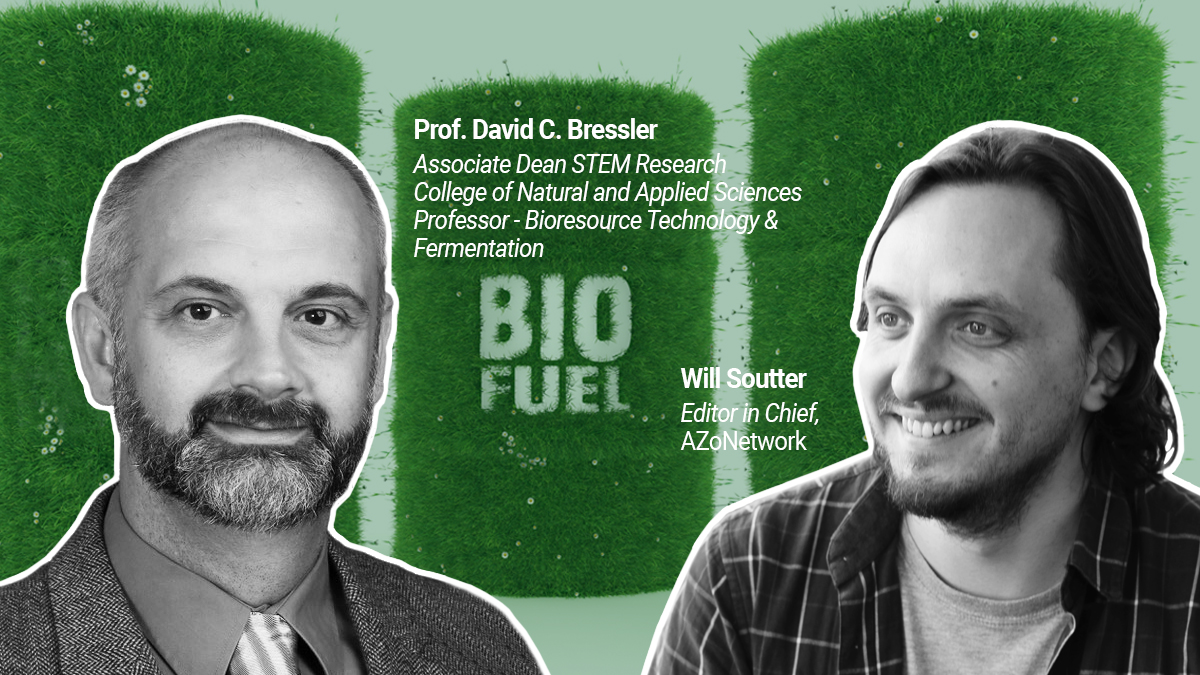Slippery Subject Matters in Biofuels
Anyone looking for reasons for the explosion of interest in biofuels need look no further than the adverse effects of our dependence on fossil fuels. Climate change, the increase of pollutants in our air and water, the high cost of conventional fuels, and the desire to reduce dependence on foreign energy sources are just some of the reasons we’re seeing exponential growth in biofuels research.
That’s why we tapped Will Soutter, editor in chief at AZoNetwork, to sit down with Dr. David Bressler, professor in the Agricultural, Life & Environmental Sciences department at the University of Alberta, where he is also an associate dean, for a wide-ranging discussion around the present and future of biofuels research. The two discussed such topics as the food-versus-fuel controversy, the importance of biofuels to the future of sustainable aviation, the scale-up challenges facing the industry, and the importance of gas chromatography in driving the research forward. And they even took time to explore experimental biofuels research into . . . spent restaurant cooking grease?
One of the first questions Soutter asked was, how do the processes you’ve worked on differ from other biofuel technologies?
DB: In the traditional pathways of fats and oils, the first generation used transesterification, which pulls the fatty acid off the triglyceride, substituting a methanol, which caps off the polarity. It makes it compatible with the hydrocarbon world, but it’s not exactly a hydrocarbon itself. It still has oxygen in it, and it has some polarity. It blended well enough, and it works, but there were some issues with cloud points and other physical properties.
WS: What was the next generation, then?
DB: The next generation was when the hydrocarbon industry got involved – they looked to hydrogen and catalysts to really knock out that oxygen and convert fats and oils directly into the hydrocarbons. That started the creation of drop-in fuels that go right into the fuel supply. The upside is, it’s a better, cleaner burning fuel than the petroleum base. For the first time, they’re making a renewable fuel that has better physical and combustion properties than the incumbent fossil fuels.
Soutter went on to ask about benefits (and downsides) of these technologies, the food-versus-fuel controversy, gas chromatography analysis – and of course, that spent cooking grease!

